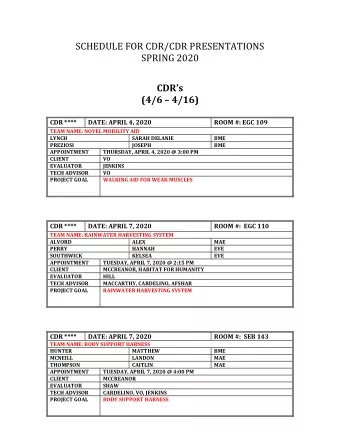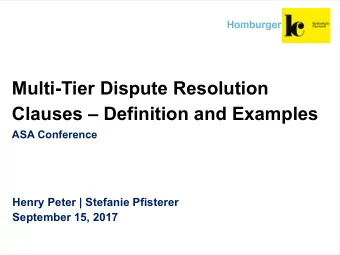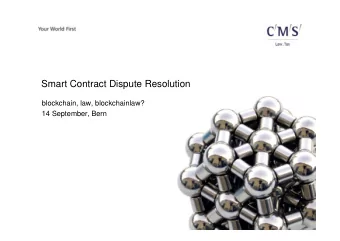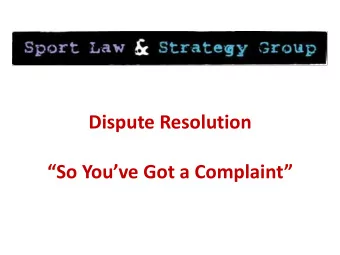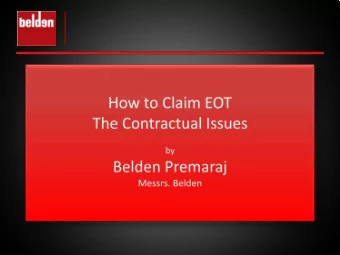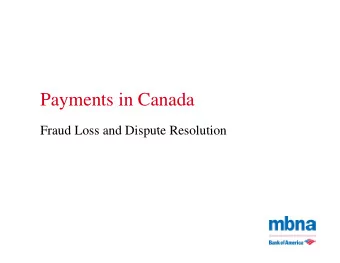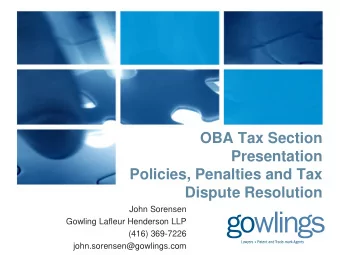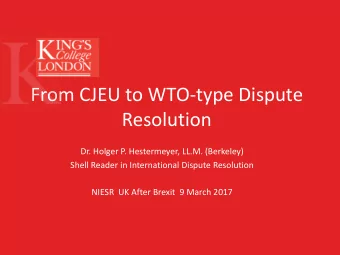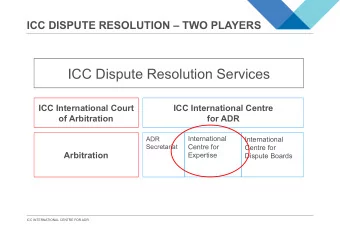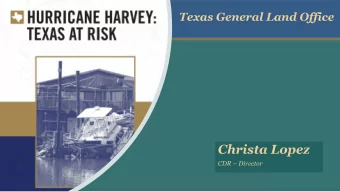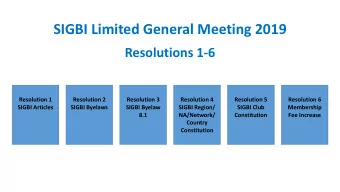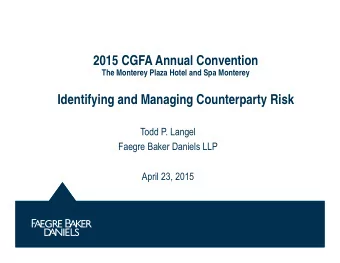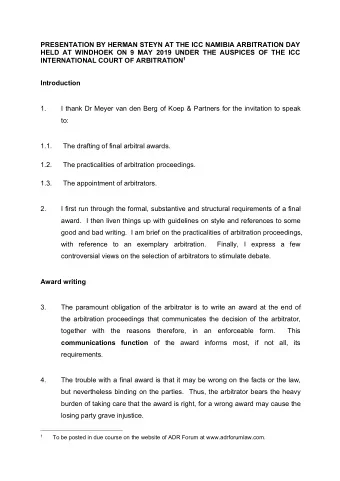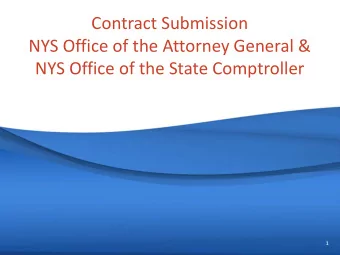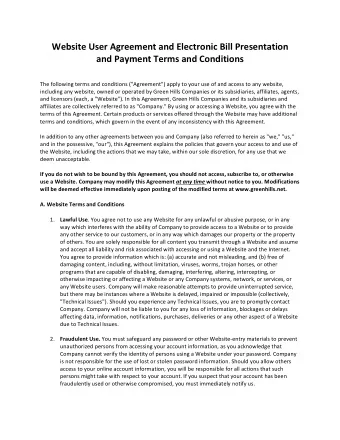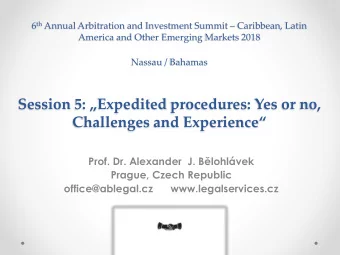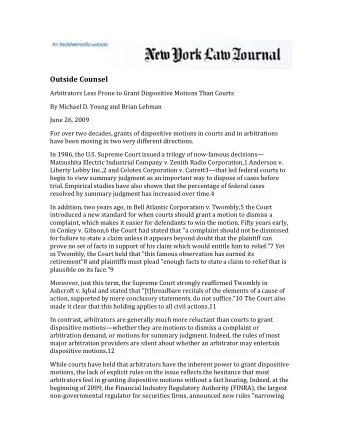
CNs Commercial Dispute Resolution (CDR) CNs Objectives Improve - PowerPoint PPT Presentation
CNs Commercial Dispute Resolution (CDR) CNs Objectives Improve responsiveness and flexibility Improve communication between CN and its Customers through a mandatory mediation Address Customers issues that are raised Rate
CN’s Commercial Dispute Resolution (CDR)
CN’s Objectives Improve responsiveness and flexibility Improve communication between CN and its Customers through a mandatory mediation Address Customers’ issues that are raised • Rate issues • Service issues • Application of CN Optional Services
What is the CDR Agreement? Commercial dispute resolution process aimed at improving responsiveness, communication between parties and flexibility Benefits for CN Customers Formal Enforceable, process to Immediate commercial attention to the deliberate and basis with less issue raised understand downside risk points of view
What does it apply to? The Commercial Dispute Resolution applies to carload traffic Transportation All rates charged or proposed to be charged for the movement of goods, with associated terms and conditions, that may be subject to Rate an FOA under S.161 of the CTA Disputes Level of All railway service obligations that may be subject to complaint under S.113 to 116 of the level of service provisions of the CTA Service Disputes Optional It is about how optional services charges are being applied – and not about the price of the services as published in the tariffs. Issues about Services prices and condition must apply uniformly to all customers and Application therefore, must be dealt through recourse to the Agency
How does the CDR process work? Phase 1 Mediation Phase 2 Binding Commercial • Agency or member appointed as mediator – efficient, Arbitration low cost process • Agency or member appointed as arbitrator (unless • Under current mediation process otherwise agreed) – faster, lower cost process • Parties or mediator free to terminate mediation and • Arbitrator makes the Decision jump to Phase 2 at any time • Mediation to run for no more than 2 days unless extended upon agreement between parties – within an overall 15 working day process Outcome Outcome • Settle dispute with a confidential agreement between • O utcome is decision of arbitrator parties • Confidential agreement between parties • If breached, current enforcement mechanisms would • If breached, current enforcement mechanisms would continue to apply continue to apply Benefits Benefits • Inexpensive – Agency supplies mediators • Experienced transportation experts to arbitrate cases • Agency already staffed and trained • Flexible, effective and less costly • Collaborative • Rate decisions have possible duration beyond 1 year, • Mediation has good track record of effectiveness in 2 years maximum railway disputes • Will formalize under Confidential Agreement
What are CN’s principles? Collaborative Efficient More collaborative process to Mandatory mediation with the deliberate and understand option to follow with binding respective points of view commercial arbitration or existing CTA remedies Timely Commercial • 15 working days from Arbitration decision is binding appointment of a mediator and can be a compromise that • 60 working days from Arbitrator minimizes risk to both parties opening conference call for linehaul rates and level of service issues
How do you sign up? Print Just add agreement Send Inform date and Your Sales Fax back to Read Sign from CN’s back us your Leader 514-399-5537 website signature www.cn.ca An efficient dispute resolution process, with value to our customers
Recommend
More recommend
Explore More Topics
Stay informed with curated content and fresh updates.

